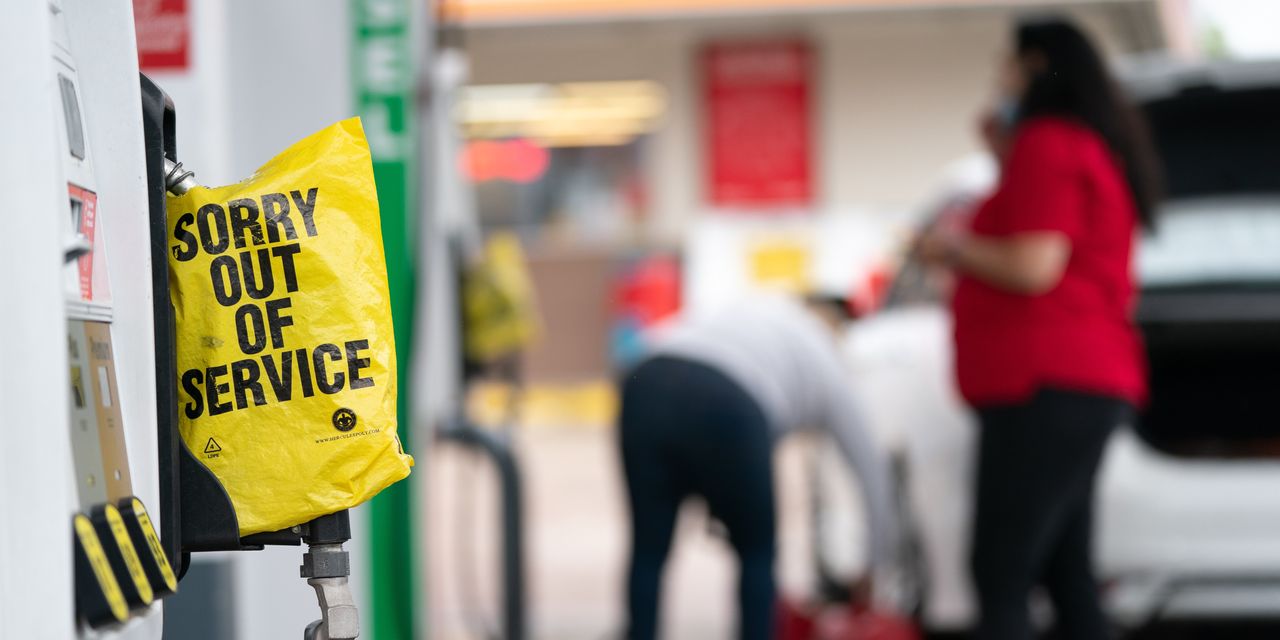
Oil futures rose Friday, bouncing back partially from the previous session’s steep losses, as a key U.S. fuel pipeline reopened after being shut down since last weekend in response to a ransomware attack .
West Texas Intermediate crude for June delivery CL00, +1.24% CLM21, +1.24% rose 78 cents, or 1.2%, to $64.60 a barrel on the New York Mercantile Exchange. July Brent crude BRN00, +1.28% BRNN21, +1.28%, the global benchmark, gained 87 cents, or 1.3%, to trade at $67.9 a barrel on ICE Futures Europe.
Colonial on Wednesday moved to fully reopen its 5,500 mile pipeline, which provides around 45% of fuel needs to the U.S. East Coast. The closure of the pipeline triggered fuel hoarding and resulted in the closure of a large number of gas stations across much of the Southeast.
Fears of an extended shutdown that could curtail refinery activity had weighed on nearby oil futures relative to later contracts, analysts said.
“If they had been forced to step on the run rate, it would have sidelined crude oil that had previously been used to produce gasoline,” said Robert Yawger, director of energy futures at Mizuho Securities, in a note. “Those fears no longer exist.”
Yawger said oil should tick higher “as refiners scramble to boil as much crude oil as possible to cover the five days of pipeline shut-in,” he said.
Colonial late Thursday said it had restarted its entire pipeline and commenced product delivery to all markets it serves.
“Following this restart, it will take several days for the product delivery supply chain to return to normal,” the company said. “Some markets served by Colonial Pipeline may experience, or continue to experience, intermittent service interruptions during this startup period.”
Colonial said it would move as much gasoline, diesel, and jet fuel as is safely possible and would continue to do so until markets return to normal.
“The Colonial pipeline restart is the beginning of the end of the crisis, not the end of the end of the supply crunch,” said Michael Tran, commodity analyst at RBC Global Markets, in a note.
“ At a minimum, such news should help stem fears of panic buying and clear the lines at the pump given that the worst-case scenario of a prolonged outage has been averted,” he said.
RBC estimated that the outage resulted in a 7.5 million barrel shortfall in East Coast gasoline and a 6 million barrel shortfall for distillate, totaling 13.5 million barrels. Since the event was contained within a weekly Energy Information Administration reporting period, next week’s inventory numbers should largely reflect the entire outage, Tran said, adding that he doesn’t expect the outage resulted in significant bookings to move product across the Atlantic.










